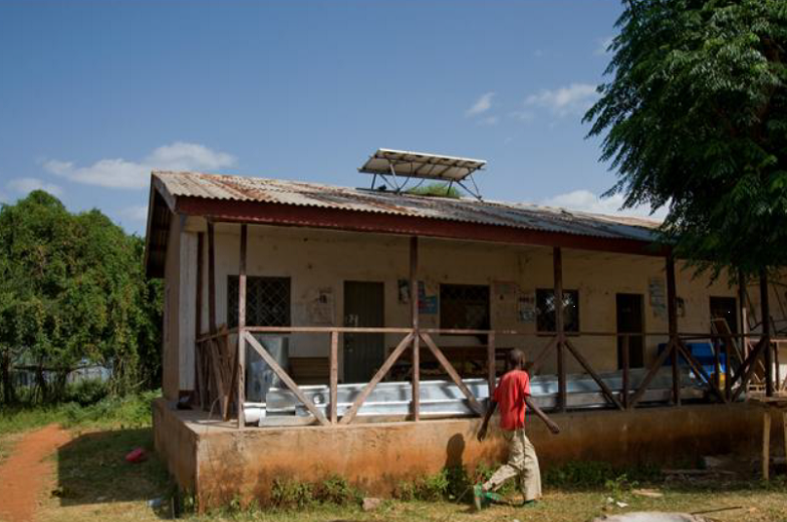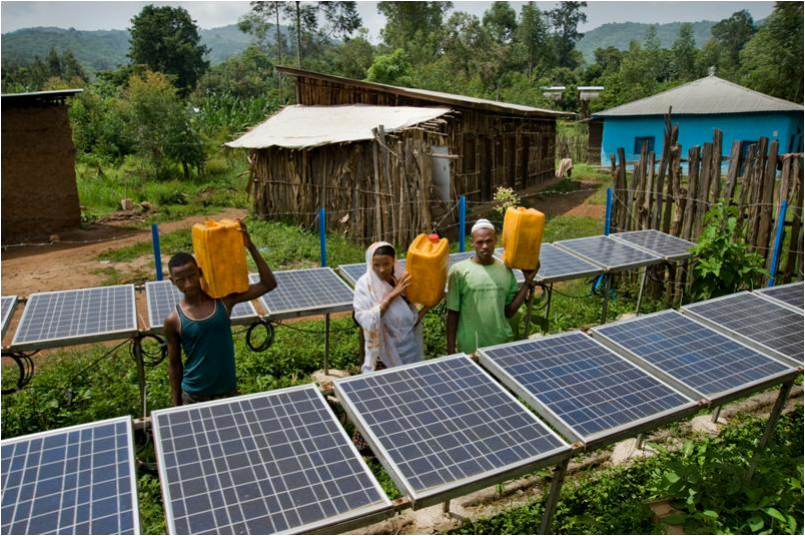DATABASE
Support to Efficient Utilization of Alternative Energy Sources to Improve the Livelihood of Pastoral and Agro Pastoral Communities in Southern Ethiopia
completed
Country
Ethiopia
Budget
500.000 - 3M $
Year
2014
Issue
Solutions
Link
www.coopi.org
Abstract
The project aims at increasing access to affordable and sustainable energy in order to improve livelihood in un-served rural areas of Southern Ethiopia. Therefore, the action foresees to increase production, supply and efficient use of renewable energies for social service facilities and institutions as well as for Income Generating Activities.
Project Description
Ethiopia is the second most populous nation in Africa and one of the lowest in terms of electricity coverage despite huge hydropower and solar potentials. While 75.3% of urban residents are covered by national grid, only 0.4% of rural population use private electricity for lighting and 0.8% has access to shared connections. The lack of electricity has negatively impacted basic services, education, small scale businesses, agricultural and livestock sector, which is the backbone of local economy. The project aims to improve agro-pastoral living conditions in rural South Ethiopia and to preserve natural resources, promoting access and use of renewable electricity sources. Main Activities: a. Solar energy for schools: 4 Schools, 2000 students, received 2000kWh electricity supply per year b. Solar energy for Health Posts: 4 HP,12000 users, received 2000kWh electricity supply per year c. Solar Systems for Livestock:4 Veterinary Health Posts equipped with solar system, 16000 users d. Solar Systems for water and agriculture: 5 boreholes/wells upgraded with solar pumping system in alternative of previous motorized/manual pumping, 8000 users 3 agricultural cooperatives,45 members, created and operational using solar pumping system 1.5Ha of unused land irrigated and cultivated e. 25 individual enterprises created and operational using solar facilities f. Fuel Saving Stoves promoted and disseminated for 6000 households g. Training of Government staff on sustainable renewable energy systems
BENEFICIARIES
The project targets rural communities living in Southern Ethiopia semi-pastoral and pastoral land of Borena and Guji Zones of Oromia and Liben Zone of Somali regions. Total direct beneficiaries of the project: 70,490 people or 17.6% of the total population in the targeted five Woredas.
Results
1 Basic social services improved through solar systems 4 school: laboratory activities and adult literacy courses during evenings 4 Health posts: regular child vaccination and emergency services during nights Solar energy driven pumping system for 5 water well: water access with no worry of power shortage (15.72 lit/c/d of water on average) 4 Veterinary Health Posts: conservation of drugs and vaccines that need refrigeration 2 Private enterprises created and operational using solar facilities 3 agricultural cooperatives supported to engage in irrigation agriculture using solar energy driven water pumps 25 small private enterprises equipped with solar system to carry on their income generating activities 3 Use of Fuel Saving Stoves (FSS) promoted at household level 6000 FSS distributed 2 cooperatives created, trained and supported to manufacture appropriate stoves for the area 4 Capacity building of Oromia and Somali Regions Offices on sustainable energy systems 40 public officers trained
Business Model
Rural communities, too remote to be connected with national electric grid, have access to renewable and affordable energy through decentralized solar systems fitted to existing social facilities (schools, HP, water well, VHP) with positive impacts on social services. Private enterprises play a triggering role for local economy. Trainings at community and government level, ensure sustainability. Lessons learnt are shared with government offices for further scaling up and replication of the action.
Lessons Learnt
Good impacts have been produced for target communities either for social services and for private enterprises running IGAs, with evidences of better livelihood for beneficiaries, given that adequate energy power supply is made available. The project also gives dimension to Government of Ethiopia’s policy level commitments for rural electrification in sparsely populated and under-served rural communities. Huge demand for solar energy supplies is emerging in agro-pastoral communities and COOPI should encourage and work more with the private sector, to promote and expand the use of solar energy through competitive processes, and with public institutions to put in place cost sharing mechanism.
Key Feature
Scaling up and replicability of the project are ensured by the kind of technology used. Decentralized solar option is familiar to the area and appreciated by local government and communities, has low O&M costs if compared with similar fossil fuels generating schemes and, considering remote areas of intervention, much more affordable than national electric grid expansion. Solar equipment suppliers and technicians are available in the country, in order to access the required spare part and equipment. A participatory approach is at the base of the action, with local government staff and communities involved starting from the project design up, to the implementation stages. Capacity building trainings, supplier companies linkages and operation-maintenance manuals, have been provided to beneficiaries. Proper handing over of the schemes to the respective local government offices has been undertaken for further scaling up and keep ownership inside communities.
Other significant information
Solar energy supply now available for rural institutions (HP-VHP-schools):21,030KWh/year. Average generated power for 5 water wells with solar energy driven pumping system: 2752KWh/year-15.72 lit/person/day of water (Sphere Standard:15Lit/person/day). Best practice: Guji women agriculture cooperative, 40 women cultivating 5h land (before the project: 15 members; 0.5h cultivated land). Based on its model, new women cooperatives are emerging in the area. Big potential impacts for Fuel Saving Stones dissemination. HH uses an average of 131kg of firewood per month for cooking (traditional 3 stones stove), producing inefficiently 2,838,636 KWh/year on avg. FSS (Tikkil Stove the more suitable for the area) generates saving potential of up to 50% for HH, for 6000 HHs: a total of 393000Kg/month of firewood saved from deforestation. Local partner: PAPDA contributing to fuel saving stoves dissemination and production activities. FTS Management and Strategy Consulting for M&E(report available).
Main Donor
European Commission
(International agencies)
Implementing Actor
Cooperazione Internazionale - COOPI (NGOs)



